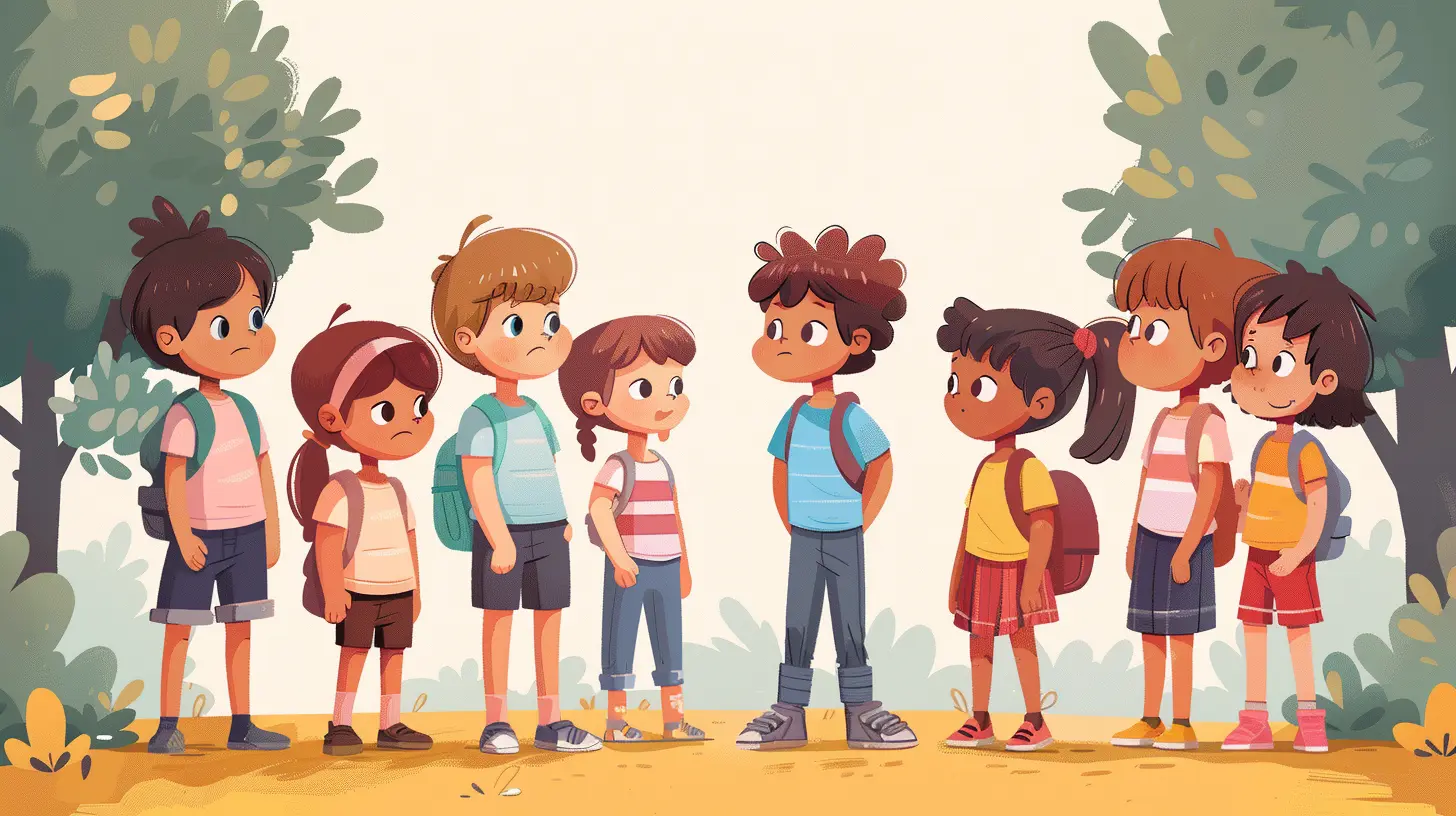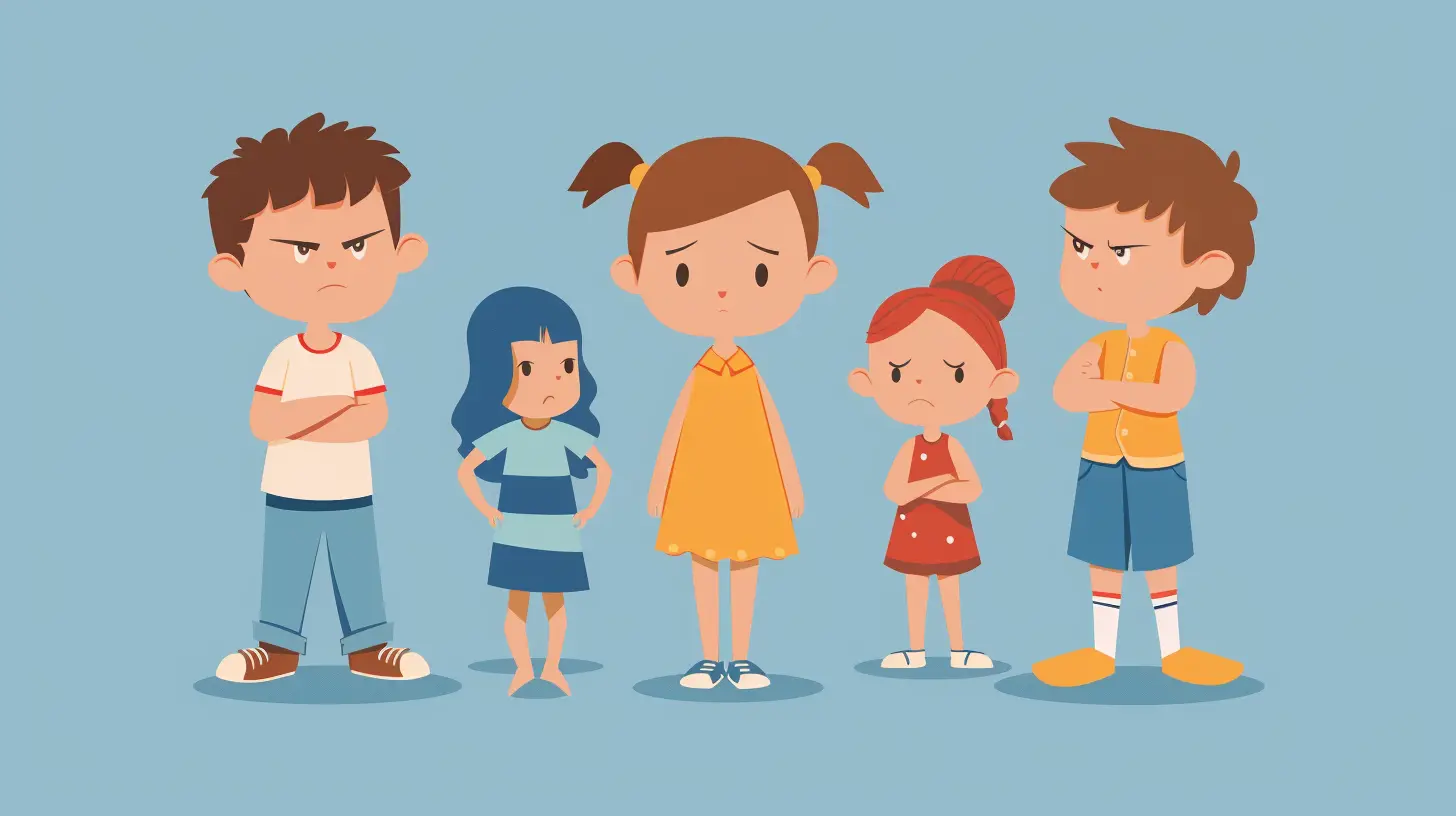16 December 2024
Bullying is a serious issue that can have long-lasting effects on a child's emotional, psychological, and even physical well-being. Unfortunately, it's not always easy to spot the early warning signs of bullying. Kids often hide their struggles, either out of fear, embarrassment, or simply because they don’t know how to express what they’re going through. As parents, teachers, and caregivers, it’s crucial to be tuned in to the subtle (and not-so-subtle) signs that something might be wrong.
In this article, I’ll walk you through the early signs of bullying in children, how to recognize them, and what steps you can take to offer support. Whether you’re a parent concerned about your child or an educator looking to create a safer environment, this guide will give you practical advice to help you navigate this sensitive issue.

What Exactly is Bullying?
Before we dive into the signs, let’s make sure we’re all on the same page about what bullying actually is. Bullying isn’t just teasing or a one-off argument between kids. It’s a repeated, intentional act of aggression—whether it’s physical, verbal, social, or even online. The key here is that it’s persistent and has the intent to cause harm or fear.Types of Bullying:
- Physical Bullying: Involves hitting, kicking, pushing, or any kind of physical aggression.- Verbal Bullying: Includes name-calling, insults, or derogatory comments meant to hurt or demean.
- Social Bullying: Often referred to as "relational bullying," it involves excluding someone from a group, spreading rumors, or damaging someone's reputation.
- Cyberbullying: Happens online through social media, text messages, or emails. It can be just as harmful as face-to-face bullying, if not more so.
Now that we’ve got that cleared up, let’s move on to the early warning signs you should be looking out for.

Changes in Behavior
One of the first things you might notice is a change in your child’s behavior. Kids who are being bullied often act differently than they normally do, and while these changes can sometimes be subtle, they’re definitely worth paying attention to.Withdrawal from Social Activities
Has your once outgoing child suddenly stopped wanting to hang out with friends? Or maybe they no longer enjoy activities they used to love, like sports or clubs. This could be a sign that something is wrong. Bullied children often isolate themselves because they feel embarrassed or scared.Avoiding School or Social Situations
A child who is being bullied may suddenly come up with excuses to avoid going to school. Complaints of frequent headaches, stomachaches, or other physical ailments can be signs of anxiety related to bullying. They may also dread attending social gatherings or activities where the bully might be present.Unexplained Mood Swings
If your child is going through sudden emotional ups and downs, it could be a red flag. One minute they may seem fine, and the next, they’re upset or angry for no apparent reason. This emotional rollercoaster could be a result of the stress and anxiety caused by bullying.
Physical Signs
Sometimes bullying leaves physical evidence. While this is more common with physical bullying, it can happen in other types as well.Unexplained Injuries
If your child comes home with cuts, bruises, or other injuries and can’t give a reasonable explanation, it’s time to dig deeper. Obviously, kids will get bumps and scrapes from time to time, but if there's no clear accident behind the injury, bullying could be the cause.Damaged or Missing Belongings
Bullies often target their victim’s possessions. If your child’s clothes, books, or electronics are frequently getting damaged or going missing, it could be a sign that someone is taking or destroying their things on purpose.Changes in Eating or Sleeping Habits
Is your child suddenly not eating lunch at school? Maybe they’re having trouble sleeping or waking up in the middle of the night due to nightmares. These are signs that your child is dealing with stress, which could be linked to bullying.
Emotional Signs
Bullying can take a massive toll on a child’s emotional well-being. Kids who are being bullied often experience a range of emotions that can manifest in different ways.Low Self-Esteem
One of the most common effects of bullying is a drop in self-esteem. If your child starts to express negative thoughts about themselves, like saying they’re “stupid” or “worthless,” it’s essential to step in and find out why they feel that way.Anxiety and Depression
Persistent anxiety and sadness are huge red flags. If your child seems overly worried, on edge, or unusually sad, these could be signs of bullying. Anxiety might show up as frequent complaints about feeling sick, while depression might cause your child to lose interest in things they once enjoyed.Sudden Aggression or Anger
On the flip side, some kids who are being bullied may act out aggressively. They might snap at family members more often or get into conflicts with siblings or friends. This could be their way of releasing pent-up frustration and fear.Social Signs
Bullying often has a significant impact on a child's social life. If your child is being bullied, you might notice changes in the way they interact with others.Loss of Friends
If your child suddenly seems to have fewer friends or is no longer invited to social events, this could be a sign of social bullying. Bullies sometimes manipulate social groups, turning friends against their victim or spreading rumors.Reluctance to Talk About Friends or School
If you ask your child how their day was and they seem reluctant to talk about it—or they avoid the topic entirely—it could be because they’re hiding something. Kids who are being bullied often don’t want to burden their parents or teachers with their problems, so they keep it to themselves.Changes in Academic Performance
Bullying can affect a child’s ability to focus and perform well in school. After all, it’s hard to concentrate on a math test if you’re worried about getting picked on during lunch.Drop in Grades
If you notice a sudden drop in your child’s grades, it could be because they’re distracted by bullying. Kids who are being bullied are often too preoccupied with their emotional and physical safety to focus on their schoolwork.Refusal to Participate in Class
A child who is being bullied might become quieter in class, refusing to raise their hand or participate in discussions. This could be because they’re afraid of drawing attention to themselves or because their confidence has been shaken by the bullying.Cyberbullying: The Invisible Threat
While traditional bullying happens in person, cyberbullying takes place online—and it can be tough to spot. Kids often spend hours on their phones, so it’s important to be aware of what’s happening in their digital world.Secretive About Online Activity
If your child suddenly becomes secretive about their online activity—closing browser windows when you walk in the room or refusing to let you see their phone—it could be because they’re being cyberbullied. Cyberbullying can involve hurtful comments, embarrassing photos, or even threats delivered through social media, texts, or emails.Excessive Time Spent Online
On the flip side, some kids might spend even more time online when they’re being bullied—either trying to defend themselves or because they feel isolated and seek refuge in the digital world. If your child is glued to their phone but seems upset or agitated afterward, it's worth investigating what's going on.How to Talk to Your Child About Bullying
The most important thing you can do if you suspect your child is being bullied is to start a conversation. But how do you bring it up without making your child feel cornered or defensive?Create a Safe Space
Make sure your child knows that they can talk to you about anything without fear of punishment or judgment. Let them know that you’re there to support them, no matter what.Ask Open-Ended Questions
Instead of asking “Are you being bullied?” (which might shut down the conversation), try something like, “How are things going at school?” or “Is anyone giving you a hard time?” These kinds of open-ended questions can encourage your child to share more about their experiences.Stay Calm
If your child does open up about bullying, it’s important to stay calm. Reacting with anger or panic can make them feel even more anxious. Instead, listen carefully and let them know that you’re on their side and will help them figure out a solution.What to Do If Your Child is Being Bullied
If you discover that your child is being bullied, don’t panic. There are steps you can take to address the situation and help your child feel safe again.Document the Bullying
Keep a record of the bullying incidents, including dates, times, and what happened. This will be helpful if you need to report the bullying to the school or other authorities.Talk to the School
Most schools have anti-bullying policies in place, so it’s essential to get them involved if your child is being bullied at school. Reach out to your child’s teacher, principal, or school counselor to discuss the situation and come up with a plan of action.Empower Your Child
Teach your child strategies for dealing with bullies, such as standing up for themselves (without resorting to violence), walking away from the situation, or seeking help from a trusted adult. Let them know that they’re not alone and that they have the power to stop the bullying.Conclusion
Bullying is a heartbreaking reality that many children face, but by staying vigilant and knowing the warning signs, you can step in before it’s too late. Whether it’s changes in behavior, physical evidence, or emotional red flags, these signs can help you spot when something isn’t right. Remember, the most important thing you can offer your child is your support, understanding, and willingness to take action.Kids need to know that they’re not alone and that bullying is never their fault. So, take the time to talk to your child, listen to their concerns, and if necessary, step in to ensure they are safe and supported. The earlier you act, the better the outcome will be—for both your child and their future well-being.












Elsinore McLoughlin
Great insights! Early detection can make a big difference!
February 12, 2025 at 9:29 PM